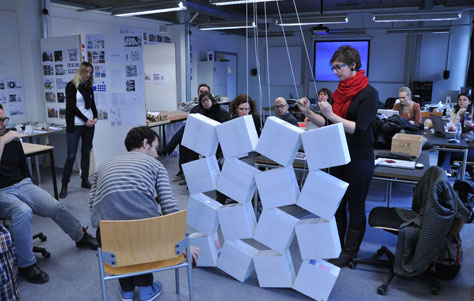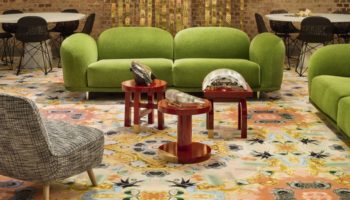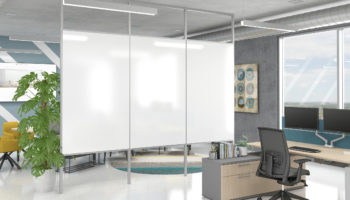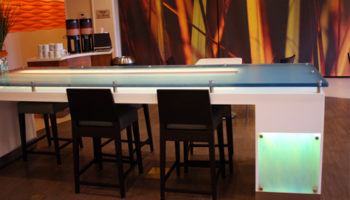Terrarium Meets Partition: The HERB² by Mariann Hildal and Milda Liubinskaite
Indoor plants are a must for creating a comfortable living environment. When apartments in densely-populated cities are in search of plants that maximize their tight quarters – like Amsterdam or Rotterdam, for instance – they turn to vertical heights. Thanks to Masters of Interior Architecture and Retail Design students from the Piet Zwart Institute, Mariann Hildal and Milda Liubinskaite, the Fabrikaat exhibition from Ventura Lambrate 2012 partnered to produce the HERB², a flexible wall that serves as a room divider and terrarium made up of multiple cubes.
HERB² room divider. Designed by Mariann Hildal and Milda Liubinskaite.
The HERB² Wall Partition Enlivens a Space with Green Plants Within.
The design duo of Hildal and Liubinskaite hail from Norway and Lithuania, respectively, but together they created the HERB² to answer the issue many face that involves the “scarcity of garden space in interior living spaces in the Netherlands”. They did so by resesarching the folding techniques that come from combining plexiglass and plywood in a systematic approach.

“Each cube contains a small terrarium visible through its transparent plexiglass component,” describes the Fabrikaat site of the HERB² divider. Its design is derived from research into versatile folding techniques by the two designers. This led to “the design of a series of interconnected cubical units, made of plywood and Plexiglas, that can rotate up to 90 degrees to create a variety of void patterns.” Sliding along tracks in the wood, the cubes allow the plant atmospheres to be adjusted by regulating temperature and humidity. By pulling up manually, a mechanism opens the the partition both visually and for more ventilation as well as intense light exposure.

Beside the high-functioning herb terrarium environments inside of the structure, the materials for that make the HERB² are also carefully considered. Both the plexiglass and pine plywood are partially recycled and LED lighting is integrated under each cube to create for use as a low-energy light source for the plants to grow as well as a source of slight illumination. According to Fabrikaat, the herbs grow in custom-made planter bags made from water resistant nylon fabric that can be removed and relocated when they reach a mature state.
About the Manufacturer: Fabrikaat is the formation of a group of students from the Master of Interior Architecture and Retail Design program at the Piet Zwart Institute in Rotterdam, Netherlands. Their works were part of an exhibition at Ventura Lambrate 2012 that “investigates the re-emerging role of the garden through a ‘research through making’ approach to design and craft.” The idea behind each design was to celebrate the research ideas and nuances of making pieces by hand instead of digitally. The work exhibited was then made during an intensive three-month thematic design studio with integrated seminar and media courses.




Leave a Reply